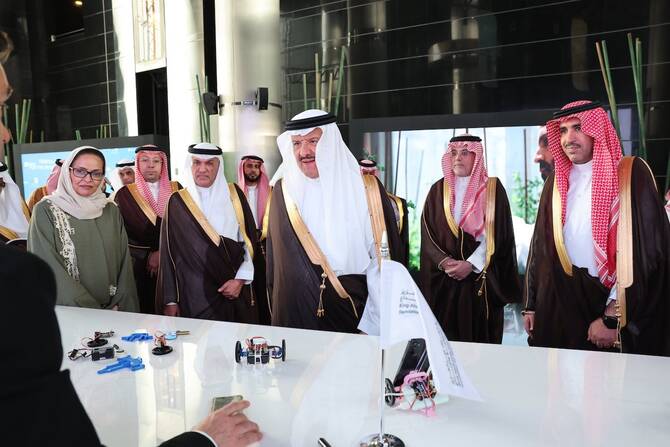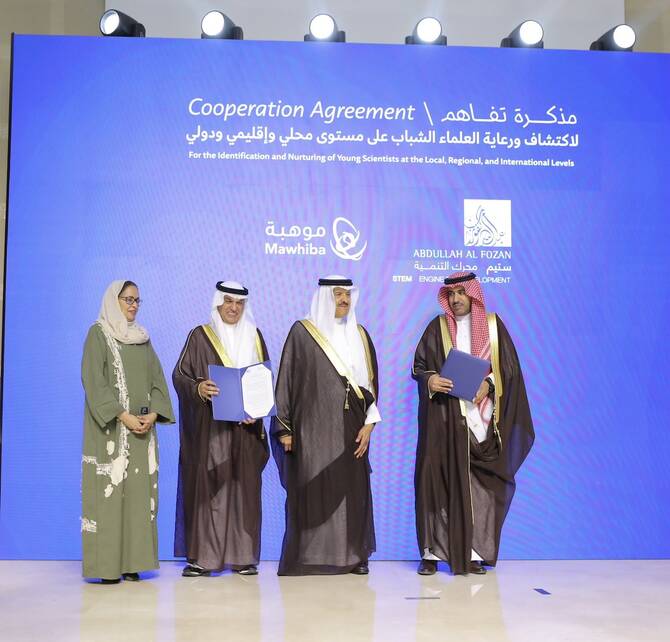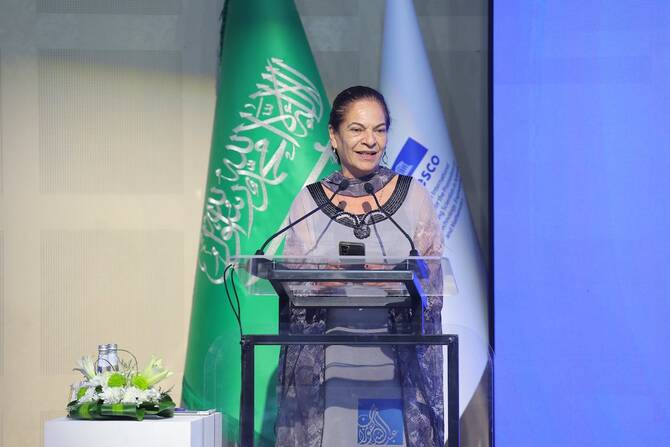RIYADH: Innovators in science, technology, engineering and mathematics from Saudi Arabia and around the world gathered in Riyadh on Monday for the Eye on the Future Summit, which aimed to share insights and discuss the future of STEM.
“Today’s gathering is a celebration of talent, creativity, and vision,” Lidia Arthur Brito UNESCO assistant director general for natural sciences, said.
“The scientists, innovators, and changemakers of tomorrow are here with us today, and it is our duty to ensure they are equipped with all the tools, opportunities, and inspiration they need to address the complex challenges of our world,” she said.
The event was hosted in collaboration with the King Abdulaziz and His Companions Foundation for Giftedness and Creativity, known as Mawhiba, the UN Educational, Scientific, and Cultural Organization, the Abdullah Al-Fozan International Prize for the Promotion of Young Scientists in STEM, the Saudi National Commission for Education, Culture and Science, and the Ministry of Culture.
Brito praised Mawhiba’s efforts in supporting the next generation of innovators in STEM, concluding: “Let us continue working together to nurture a generation of scientists who will not only imagine the future but lead it.”
The session “From the stars to STEM” featured prominent speakers, including Prince Sultan bin Salman, special advisor to King Salman, who delivered the keynote on empowering Saudi youth.
Prince Sultan delivered a heartfelt speech emphasizing valuable life and career lessons, including the importance of listening to one’s parents, staying connected to nature, preserving Saudi identity, and valuing continuous education.
He reflected on his years with the Saudi Commission for Tourism and National Heritage since 2000, highlighting the generosity and unmatched hospitality of Saudi Arabia.
“Everyone comes to Saudi Arabia today to find their way, to learn things to enjoy life. They will not come to a better people who are more hospitable and generous, and I have heard that from all the people who have come to Saudi Arabia,” Prince Sultan said.
Following his remarks, the panel sessions began, featuring a distinguished lineup of local and international pioneers, innovators, and supporters in STEM, including Dr. Majd Abdulghani, a genomics lead at Lean Business Services and deputy national secretary for the Rhodes Scholarship in Saudi Arabia.
Abdulghani was also the first Saudi to receive a Rhodes Scholarship, and is dedicated to promoting the integration of genomic data into personalized, preventive healthcare in Saudi Arabia.
During the summit, she spoke about youth empowerment in STEM, emphasizing her mission to raise awareness of the opportunities available to Saudi youth in the field. “What I am focused on is trying to avoid missed opportunities,” she said.
The summit featured an memorandum of understanding signing between Mawhiba and Abdullah Al-Fozan Foundation for Education, which aims to continue support in providing access to STEM studies for the youth in Saudi Arabia.
During a visit to Mawhiba’s headquarters ahead of the event, Brito praised the foundation’s efforts to discover and nurture talented individuals in scientific fields.
“I think what unites UNESCO and Mawhiba is the true belief that STEM is very important for young people because it equips them with scientific knowledge, but also with critical thinking,” Brito said.



















